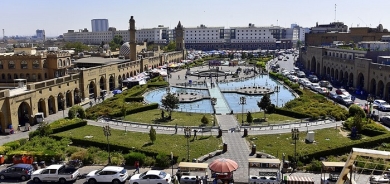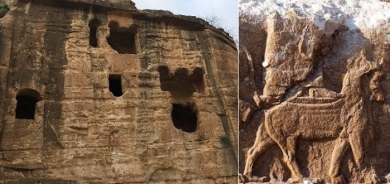U.N. General Assembly to vote Thursday on Syria; China warns of ‘wrong steps’

The resolution drawn up by Saudi Arabia and Qatar, which was given to member nations on Tuesday, also expresses support for the Arab League’s plan to end the 11-month crackdown in Syria and calls for the naming of a U.N. special envoy.
The move comes after Russia and China vetoed a second Security Council resolution on the crisis in Syria on Feb. 4, because they said it was “unbalanced.”
Russia and China are expected to oppose the new text but no one can veto resolutions in the 193-nation General Assembly, though they carry less weight. Diplomats said the measure was almost sure to pass.
The vote is expected on Thursday at 3:00 pm (2000 GMT).
“We’ll see if this new text earns more or less than the 133 votes given to the first resolution” adopted on Dec. 19, one diplomat said, according to AFP.
That measure denounced human rights violations in Syria, where activists say more than 6,000 have died since protests against Assad’s government erupted last March.
“That will be the measure of success, but this time, the content is more political in nature,” the diplomat said on condition of anonymity.
An Egyptian diplomat said his country, which presides over the Arab group in the Assembly, wanted to see a vote on the resolution “as soon as possible.”
The draft resolution does not refer to an Arab League request for a joint peacekeeping mission with the United Nations, which has been met in some Western capitals with caution.
The Security Council has yet to adopt any resolutions on the situation in Syria. Russia and China also vetoed a draft in October.
The General Assembly draft is similar to the one blocked in the Council.
The text “fully supports” the Arab League’s plan “to facilitate a Syrian-led political transition to a democratic, plural political system,” without however mentioning Assad by name or the plan for him to hand over power.
It “calls upon the Syrian government to immediately put an end to all human rights violations and attacks against civilians” and “condemns all violence, irrespective of where it comes from.”
The text calls on U.N. Secretary General Ban Ki-moon to back the Arab League by appointing a special envoy to Syria, and “stresses the need to resolve the current political crisis in Syria peacefully.”
OIC urges greater pressure on Syria
The Organization of Islamic Cooperation (OIC) on Wednesday urged greater diplomatic pressure to force Syria’s government to negotiate with the opposition but said it was against the use of foreign military intervention.
Secretary General of the 57-member organization, Ekmeleddin Ihsanoglu, told an audience in Canberra that military intervention would only harm the Syrian people, citing conflicts in Iraq, Libya and Somalia, Reuters reported.
“All these military interventions worsened the position rather than solved the conflict,” he said.
International powers, along with the OIC and the Arab League, plan to meet in Tunis on Feb. 24 as part of a newly-created “Friends of Syria Group” to look for a way to peacefully end the conflict in Syria.
“This will throw increasing pressure on the government to talk to the opposition. We need to work out a blueprint for the future transformation of power,” he said.
U.N. High Commissioner for Human Rights Navi Pillay told the General Assembly on Monday that “crimes against humanity are likely to have been committed” in Syria since March 2011.
“Independent, credible and corroborated accounts indicate that these abuses have taken place as part of a widespread and systematic attack on civilians,” Pillay said. Damascus on Tuesday flatly rejected her claims, according to AFP.
China warns against wrong stept by U.N.
Meanwhile, a Chinese top official warned that missteps by the U.N. Security Council could cause worse bloodshed in Syria.
The Security Council must be “very careful” when dealing with Syria, Chinese Vice Foreign Minister Cui Tiankai told reporters on Tuesday after Vice President Xi Jinping finished a day of talks in Washington.
Cui reiterated China’s position that it supported the role of the Arab League in seeking to defuse the Syrian conflict and “inclusive dialogue” in Syria to end the violence, according to Reuters.
But he said the U.N. Security Council needed to take a “very careful and very responsible attitude” regarding action on Syria.
He said: “If the U.N. Security Council takes the wrong steps that could lead to even worse bloodshed.”
U.S. President Barack Obama told Xi that China must play by the same trade rules as other major world powers, expressed disappointment about China's veto of a U.N. Security Council resolution on Syria, and vowed to keep pressing China on its human rights record.
AL ARABIYA














